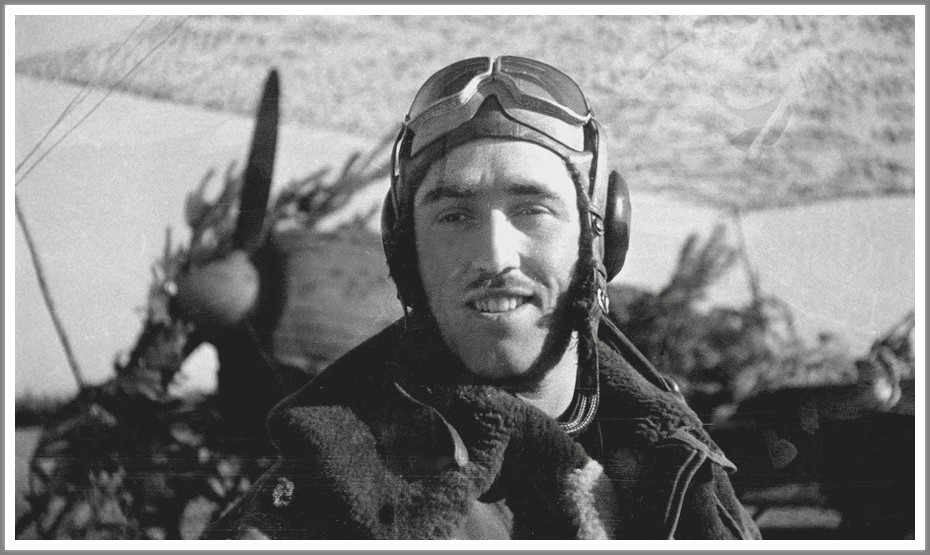Vladimir Levitan was born in 1918 in the village of Zherebets (now in the Tokmak District of Zaporozhie Region in Ukraine), to which his parents had fled from Aleksandrovsk (present-day Zaporozhie) to escape a pogrom. However, the Levitan family soon returned to Aleksandrovsk, where Vladimir finished a 7-year school and then entered a factory-sponsored vocational school. He later worked as a lathe-operator.
In 1938, Levitan unsuccessfully tried to enter a military flying school, with the medical commission rejecting him because of his partial colorblindness. However, that handicap did not prevent him from being a member of the Zaporozhie aeroclub, and later of a group of flying instructors. Vladimir made a second attempt to enroll in a flying school and a school for polar pilots, but was disqualified because of his eyesight problems yet again. During his next attempt, instead of applying in person, Levitan sent a friend of his to the medical commission. In this way, he became a student at the Kacha Military School, beginning a shortened intensive course for pilots of fighter planes. At some point, Levitan's deception was discovered, but his cause was taken up by the head of the school, General Ivanov. In view of Levitan's personal ability to handle the aviation equipment, he was permitted to continue studying. In 1938, he graduated from the school with the rank of second lieutenant.
When the Soviet-German war broke out in June 1941, Vladimir was in the stanitsa (large Cossack village) of Timashevskaya (Rostov Region), where he was learning to operate fighter planes at night. The squadron in which he was serving was then transferred to the Taganrog aircraft factory, to receive a new type of fighter plane and learn how to operate it. In early October 1941, Vladimir Levitan was in the Melitopol area of the Southern Front, where the military situation was very serious.
During the war, Vladimir Levitan took part in more than 350 sorties and 100 dogfights. His plane was hit three times. On the first occasion, he succeeded in landing the damaged aircraft in the gulf of the Azov Sea, where he was rescued by local fishermen. The second time, he managed to parachute from his burning plane. The third time, he was able to land his damaged aircraft on its fuselage in territory held by the Red Army. Vladimir Levitan was twice nominated for the title of Hero of the Soviet Union, but he did not receive this honor because of his cohabiting with a subordinate. That woman, whom he would later marry, was his weapons supplier. However, his third recommendation for Hero of the Soviet Union was finally accepted, in June 1944. In the course of the war, in addition to the Order of Lenin (which was awarded to Heroes of the Soviet Union), Levitan received two Orders of the Red Banner; the Order of Kutuzov, 3rd Class; the Order of the Patriotic War, 1st Class; the Order of the Red Star, and several medals.







